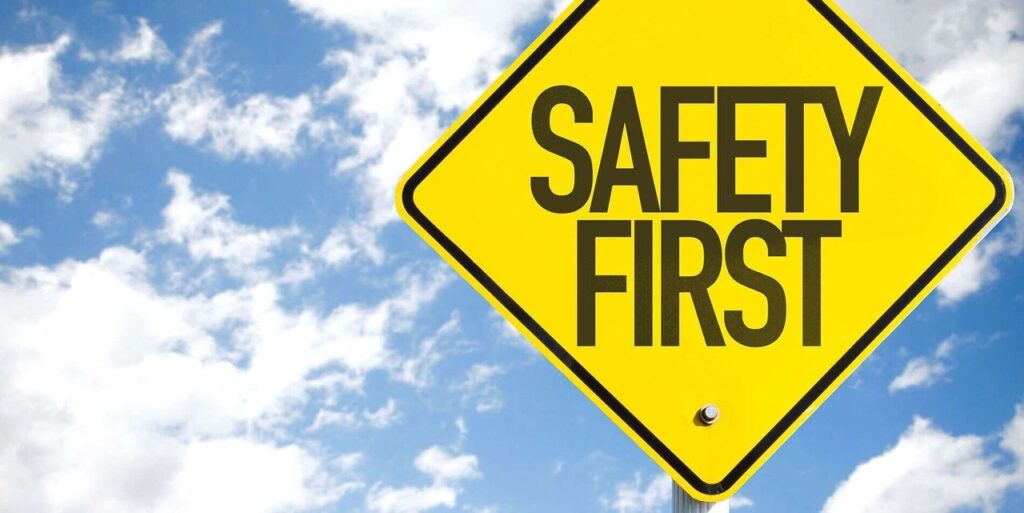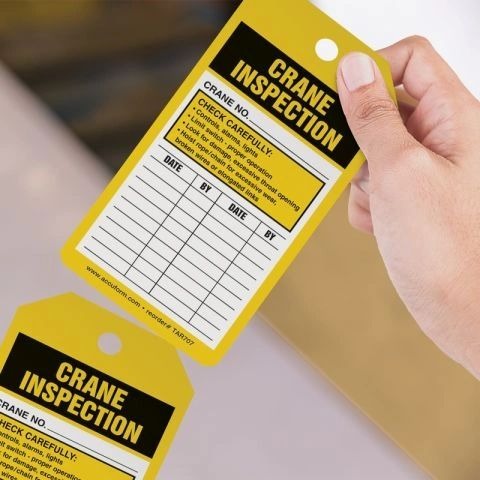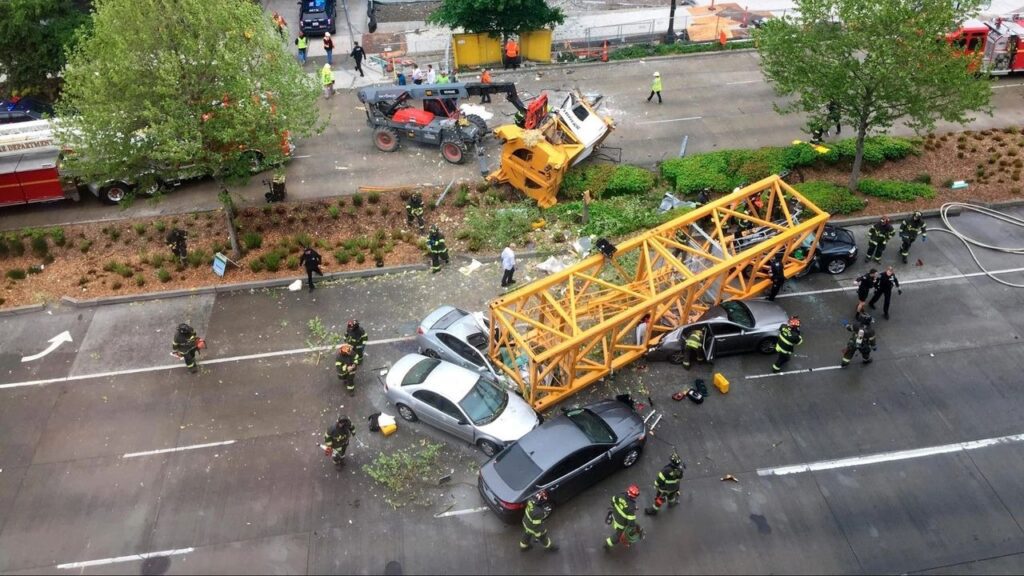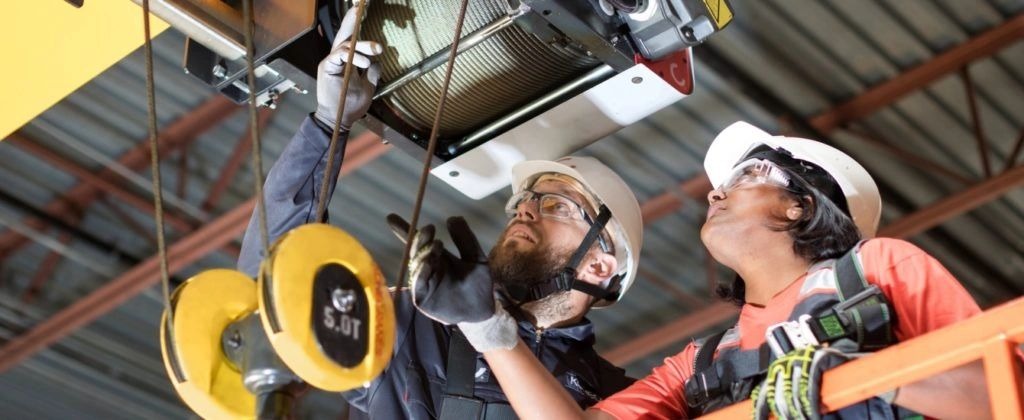Crane maintenance is an essential aspect of the construction industry that is often overlooked. Many construction professionals tend to focus solely on completing projects on time and within budget. This could cause the neglect of the necessary upkeep of their cranes. However, regular routine maintenance plays an important role in ensuring:
- Crane safety
- Longevity
- Efficiency
Benefits of Crane Maintenance Requirements

Regular maintenance schedules benefit construction professionals with:
- Enhanced efficiency
- Longer equipment life
- Safety
- Project timelines
- Client satisfaction
Prioritizing routine maintenance ensures smooth construction operations. It also promotes a culture of reliability and excellence in the industry. These key advantages are:
Enhanced Safety and Compliance
Routine crane inspections and preventive maintenance are critical for identifying potential risks. This can include component wear or lifting mechanism issues which are crucial for avoiding accidents. It also ensures that equipment remains in good condition. Adhering to these practices ensures:
- OSHA Compliance
- Minimizes safety risks – particularly in heavy machinery like mobile cranes
- Meets statutory and manufacturer’s recommendations
- Addresses potential safety risk concerns
Regular maintenance not only prolongs the crane’s lifespan but also maintains operational efficiency. Daily inspections, including checking chains and looking for cracks are essential. This will ensure all components meet the manufacturer’s specifications and uphold safety standards.
Increased Equipment Longevity and Efficiency
Regular crane maintenance is key to preserving lifespan and enhancing efficiency. Proper maintenance practices include:
- Scheduled maintenance extends the life of the equipment. This also helps ensure they operate for extended periods without major issues.
- Proper maintenance routines cut the risk of unforeseen damages that can affect a project.
- Regular inspections and preventive measures ensure maximum uptime by addressing potential risks early.
- Routine maintenance minimizes unexpected downtime caused by breakdowns, maintaining optimal operational efficiency.
- Preventive maintenance identifies potential problems, allowing for timely repair and avoiding project delays.
By keeping cranes in excellent working condition and adhering to the manufacturer’s recommendations, operations remain efficient and equipment longevity is significantly enhanced. Regular inspections are crucial for identifying wear and potential risks. They contribute to a smoother operation and reduce risks on the job site.
Cost-Saving Measures
One of the biggest benefits of regular crane maintenance is cost savings. Many construction professionals may view it as an added expense. However, proper upkeep and preventive maintenance are crucial for avoiding future repair costs. Well-maintained cranes operate at peak efficiency. This reduces energy costs and minimizes unexpected downtime due to breakdowns.
Routine maintenance can also identify potential issues early on. This allows for timely and cost-effective repairs before they become bigger problems. This saves money and also avoids project delays and maintains a good reputation with clients.
Key Maintenance Practices

Here are some key practices that should be included in every regular maintenance schedule:
Crane Inspections
Conduct thorough compliance inspections on cranes before and after each use. There should also be routine inspections on a weekly or monthly basis. Look out for any signs of wear and tear, damage, or corrosion that could affect the crane’s performance.
Lubrication
Proper lubrication is necessary for the smooth operation of crane components. Ensure to follow manufacturer guidelines and use high-quality lubricants. Regular lubrication also helps prevent rust and corrosion, extending the crane’s lifespan.
Component Replacement
Replace any worn or damaged components immediately to avoid further damage and safety risks. It is important to maintain detailed records of replacements for future reference.
Cleanliness
Cranes should be kept clean to prevent the buildup of debris that could interfere with operations. Clean the crane regularly, and pay special attention to electrical components to prevent damage.
Electrical Checks
Regularly inspect electrical systems, wiring, and connections to avoid any potential electrical hazards. These checks should be conducted by a certified electrician. This will ensure safety and compliance with OSHA regulations.
Load Testing
Conduct load tests on cranes to ensure safe handling of required capacities. These tests identify mechanical issues early, optimizing maintenance and enhancing crane efficiency.
Operator Training
Ensure the crane operator has had comprehensive training to operate cranes safely. This includes:
- Understanding the specific crane type
- Recognizing early signs of wear and tear
- Emergency response training
Regular refresher courses are important to keep up with industry standards, safety protocols, and new technology.
Risks of Neglecting Maintenance

Neglecting crane maintenance can result in various components of severe consequences, such as:
Accidents
Failing to address potential issues through routine maintenance could lead to accidents. Accidents can pose significant safety risks for crane operators and personnel on the job site. These accidents can also result in litigation and damage to the company’s reputation.
Costly Downtime
Inadequate maintenance could result in unexpected breakdowns. This could lead to costly repairs and cause delays in project completion. This could also result in the loss of business and damage to the company’s reputation.
Violations and Fines
Failure to comply with OSHA regulations can result in hefty fines, putting a strain on the company’s finances. It could also lead to work delays, affecting project timelines and overall profitability.
Reputation Damage
A history of accidents, delays, and non-compliance due to neglecting maintenance could harm a company’s reputation and impact future business opportunities. A well-maintained crane is a reflection of the company’s commitment to safety and professionalism. This will enhance your reputation among clients and industry peers.
Embracing Preventative Maintenance for Optimal Crane Performance
Regular and preventive maintenance is a non-negotiable aspect of crane operations, it:
- Ensures safety
- Minimizes downtime
- Prolongs the equipment’s lifespan
- Contributes to project efficiency and cost-effectiveness
While it may seem like an extra expense, in the long run, it can save money and protect your company’s reputation. Embrace proactive maintenance practices and reap the benefits of:
- Optimal crane performance
- Enhanced safety
- Increased longevity of your equipment
Remember, a well-maintained crane is a testament to your company’s commitment to excellence and safety.
